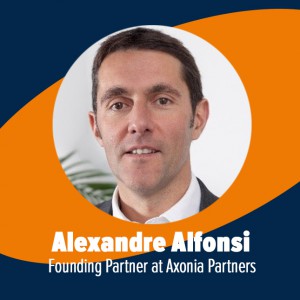The fundraising paradox for African private equity

 Africa is a region of untapped opportunities that seemingly isn't getting quite enough attention that it deserves from the private equity crowd. Alexandre Alfonsi, Founding Partner at Axonia Partners, explores deeper into the paradox.
Africa is a region of untapped opportunities that seemingly isn't getting quite enough attention that it deserves from the private equity crowd. Alexandre Alfonsi, Founding Partner at Axonia Partners, explores deeper into the paradox.
At a time when $10+bn mega-funds in developed private equity markets get raised almost effortlessly, African private equity still struggles to raise $2bn per year, perhaps $4bn on a good year. And while, by recent counts, there are almost 7,800 private equity firms populating the private equity market worldwide, there are just over 200 established private equity firms in Africa. For a continent of a size greater than that of the US, Europe, China, India and Japan combined, undergoing the most fundamental demographic and structural changes in the world, the potential opportunities appear still largely untapped by private equity investors. Are there any reasons for this paradox? Are there any catalytic ways to start solving it and grow the African private equity industry?
Private equity firms and local businesses in Africa
Most LPs remain prompt to list the traditional concerns that restrain them from looking at Africa: its political uncertainties, local currency fluctuations, etc. which ironically should be at times even more worrying when applied to the large and developed economies where those LPs are based.
Yet the primary struggle of the PE industry has been to find its proper model in Africa. The apparent ease of doing business in languages and environments that mimic those of more traditional PE markets should not mask the learning curve required by all its participants for the PE ecosystem to thrive. Crafting a proper PE transaction remains comparatively slow on the continent, between securing acceptance of the suggested deal by company owners, having the target company meet basic ESG prerequisites, agreeing with managers and shareholders on the path to value creation, completing all customary and specific audits, and, in some instances, gaining political agreement.
African companies have used their focus and flexibility to expand not only within their home markets but to other parts of the continent as well, a trend that has accelerated in the past few years.
Likewise, exit processes can be notoriously slow given similar considerations by the acquirers, even more so if a corporate’s reputation can be at risk, or when the logistics and travels required by all parties to the transaction are factored in. In-between, the cultural acceptance of PE and constraints resulting from the capital injection into a private company are not often well understood by employees, if at all well-articulated and explained by the new company shareholders.
By contrast, the speed at which local or locally-entrenched family businesses can move remains impressive in comparison. As evidenced by a series of research reports, African companies have used their focus and flexibility to expand not only within their home markets but to other parts of the continent as well, a trend that has accelerated in the past few years. Their capital is more patient, and their model has been successfully tried and tested to prevail in turbulent environments. It is Darwinian-tested by design and iteration, not by decree of international PE pundits.
Be inspired (or advised)
Reflecting on our recent and past 12 years spent advising African PE firms and businesses, we are now witnessing the emergence of hybrid solutions to the fundraising paradox.
Beyond the DFIs that have traditionally provided stable foundations to a large majority of PE firms on the continent, we are now seeing an increasing number of family offices, corporations, sovereign or pension funds, that are looking at Africa strategically. Rather than deploying capital purely on a risk-return adjusted basis, or for diversification purposes, they are willfully looking at the fundamental shifts taking place on the continent and preparing themselves for a more active role on its markets as they continue to grow and mature.
As a result, PE firms should reflect on what makes them unique and to which type of investors this would resonate with beyond the DFIs, then look for those target investors and ways to access them and hire professional advisers if they do not have such access. Indeed, each fundraising case we saw managed to bring commercial investors (family offices, institutions, strategic investors, etc.) that were attracted by particular features of the GP’s strategy.
Fundraising for African PE firms and businesses requires introspection and selective outreach. In preparing themselves for the SuperReturn Africa conference in Cape Town this November, PE firms will have another occasion to reflect on and demonstrate their unique characteristics.
References:
- Global Private Equity Report 2018 by Bain & Company, Inc.
- Map of African PE firms, by Asoko Insight and Africa Capital Digest | Internal Data and Research, Axonia Partners, excluding firms that may have an Africa focus but are not based on the continent or aspiring firms in formation
- E.g. Pioneering One Africa, by the Boston Consulting Group